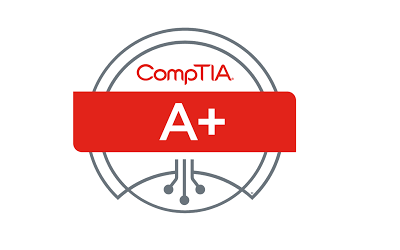CompTIA A+ Certification
Earned the CompTIA A+ Core 1 (220-1101) certification with a score of 768/900.
Earned the CompTIA A+ Core 2 (220-1102) certification with a score of 757/900.
View Certification Verification

CompTIA A+ Certification (Combined Core 1 and Core 2)
Certification Overview
This certification validates practical knowledge across a wide range of IT topics, including hardware, networking, mobile devices, virtualization, operating systems (Windows, macOS, Linux, Android, iOS, Chrome OS), software troubleshooting, security, and professional IT procedures. Core 1 emphasizes hardware and connectivity, while Core 2 focuses on systems, security, and operational support.
Study Resources
- Professor Messer's full video course and downloadable course notes (v1.2)
- Professor Messer’s full-length practice exams — Core 1: 88%, 94%, 96% / Core 2: 87%, 93%, 90%
- ExamCompass.com quizzes and mock exams
- Sybex CompTIA A+ Complete Review Guide, 5th Ed.
- Official CompTIA A+ Study Guides (combined Core 1 and Core 2)
- CompTIA 220-1101 and 220-1102 Objective PDFs (used as checklists)
Study Strategy
- Daily review of flashcards and question sets per domain
- Simulated 90-question practice exams to build endurance and accuracy
- Hands-on practice with command-line tools and system utilities
- PBQ-style review sessions covering scenarios like permissions, malware removal, and hardware diagnosis
- Mapped each domain against the official objectives and confirmed readiness with performance-based testing
Skills Demonstrated
- Identification and use of hardware components, memory types, RAID levels, and connector standards
- Understanding of TCP/IP, ports, protocols, DNS record types, and network troubleshooting
- Configuration and troubleshooting across Windows, macOS, Linux, iOS, Android, and Chrome OS
- Execution of security best practices: firewalls, permissions, authentication, and malware handling
- Applied virtualization concepts, cloud models, and mobile device management
- Professional support practices, operational procedures, and documentation workflows
